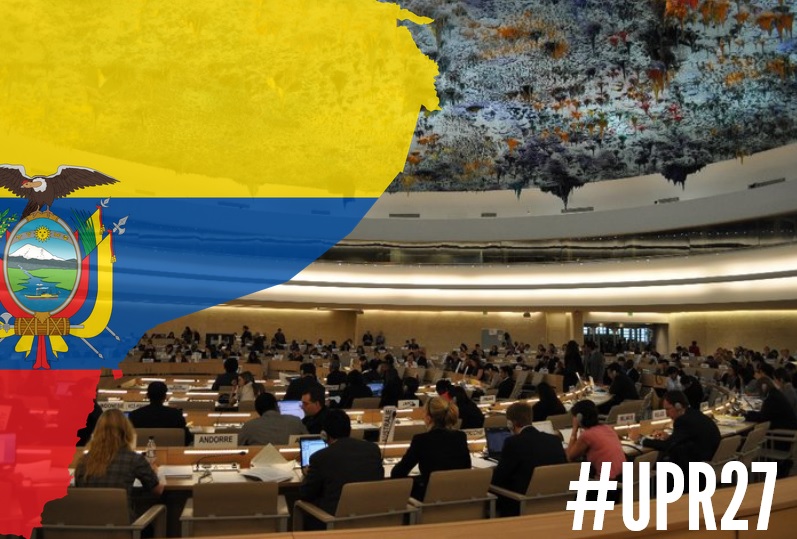






Washington, D.C., April 28, 2017.- In light of Ecuador’s Universal Periodic Review scheduled for Monday, May 1st, 2017 before the United Nation’s Committee on Human Rights in Geneva, the Center for Justice and International Law (CEJIL) would like to underscore several human rights setbacks for which the Ecuadorian State should be held accountable.
With regards to violations concerning the freedom of association and expression, as well as the harassment of human rights defenders, the State’s lack of respect for the full enjoyment of the right to defend human rights is a matter of great concern. The actions taken against Acción Ecológica in 2016 and Fundación Pachamama in 2013, highlights the types of reprisal tactics used against human rights defenders who attempt to do their job within the country.
Unlike Fundación Pachamama —whose case is currently pending before the Inter-American Commission on Human Rights—, Acción Ecológica managed to dodge being shut down due to national and international pressure. However, it is extremely worrisome that executive decrees which allow the aribitrary dissolution of civil society organizations are a mechanism that continue to exist. Their possible use undermines the important work of human rights defenders and places the members of these organizations in a situation of high vulnerability, a point which has been denounced by the United Nations Relator on Freedom of Association, Maina Kiai, among others
Additionally, Ecuador must answer for its persistent violation of the right of its indigenous peoples to prior, free and informed consultation. In the face of increasing pressure by extractive industries, the State must adapt its national policies, practices and legislation, in accordance with international law, to guarantee the survival of its first peoples. This point has been consistently brought up before multiple national and international bodies, among them the Inter-American Court on Human Rights (I-A Court) on December 2, 2016, during a compliance monitoring hearing on the Kichwa People of Sarayaku case. At this same hearing, the State’s failure to comply with the Inter-American Court’s 2012 judgment was repeatedly demonstrated, particularly its breach of adapting its right of consultation processes in accordance with international law.
Finally, Ecuador must provide more information with regards to human rights of inmates. Despite recent reforms undertaken to improve the situation inside the prison system, many of them are hive beds of violations, including physical and psychological abuse, overpopulation, among other. Moreover, cases involving people who were detained and subsequently tortured –like French citizen Daniel Tibi whose case was judged by the Inter-American Court— remain in a situation of impunity.
Ecuador’s last UPR took place in 2012, with several States commenting on the country’s progress and setbacks in human rights. However, according to Ecuadorian civil society groups, 70% of the recommendations have not been implemented, 10% were partially met and only the remaining 20% was fully complied with.
We hope that this latest UPR will encourage Ecuador to generate spaces for respectful dialogue with Ecuadorian civil society in order to reinforce the guarantee the right to defend rights. Furthermore, we hope that the process will highlight Ecuador’s pending challenges regarding the protection and promotion of human rights within the country and incentivize the State to take this review as an opportunity to promote public policies that effectively guarantee the rights of all Ecuadorians.
To see the UPR live, click here: or follow on twitter #UPR27
Help us continue this critical and urgent work with a donation!
DONATE NOW